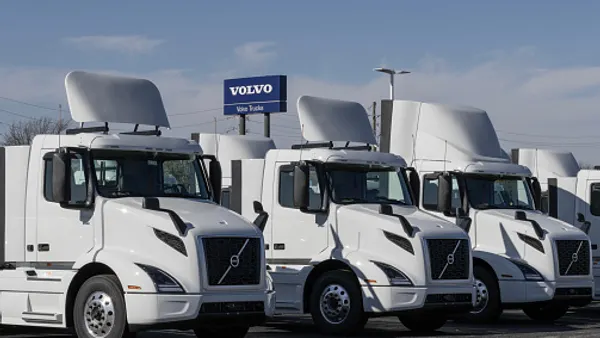Most people don't realize that when they buy counterfeits they are supporting organized crime, and in some cases seasoned criminals' second careers.
"We know that counterfeiting has become a very attractive retirement program for drug dealers," said Ann Harkins, CEO of National Crime Prevention Council (NCPC), at a recent Congressional briefing about anti-counterfeiting efforts. "Why? It's cleaner. It's safer. They are not as likely to get caught. If they get caught they are not as likely to do as much time."
The proliferation of fake goods has surged, leaving manufacturers scrambling to keep them out of their supply chains. A test conducted earlier this year by the U.S. Government Accountability Office found 20 out of 47 products sold by third-party sellers online were counterfeits, leaving both the government and corporations to chase after fraudulent sellers. In 2017, U.S. Customs and Border Protection (CBP) and U.S. Immigration and Customs Enforcement (ICE) seized a record number of shipments of illegal goods, with a combined $1.2 billion price tag had the goods been genuine.
The holiday season only increases the likelihood consumers will encounter counterfeit goods, including decorative lights, small electronics, sneakers and toys. This year retailers have offered fantastic discounts on products, and shoppers have rewarded them by spending over $6 billion online on Black Friday and $7.9 billion on Cyber Monday, according to Adobe Analytics. But the hunt for the best sale can lead consumers to counterfeit items — often unwittingly. "Throughout the year, and especially during the holiday and Christmas seasons, consumers need to be aware that counterfeit products are being sold online," said Intellectual Property Enforcement Coordinator Vishal Amin.
Authentication of products by retailers is one means to combat the issue. For consumers, it's a service that can help sort out legitimate companies from nefarious ones. For brands, it protects hard-won reputations. Recently, eBay expanded authentication services to include fine jewelry and luxury watches. But not all brands want retailers to take the lead. Last month, for example, Chanel filed a lawsuit against The RealReal, alleging the reseller sold fake Chanel items on its platform. The RealReal reiterated that it has its own internal authentication process, and even partners with many of the brands it sells to ensure their goods are legitimate.
With shopping at a peak, the holidays are a time when consumers and brands are particularly vulnerable to counterfeit sales. Bradley Hayes, the executive director in the office of trade relations at CBP, estimates that 30% of fakes are sold during the six weeks of the holiday season. "It's incredibly important that we do our job," he said during the Congressional briefing. On a typical day the CBP seizes around $3.4 million worth of intellectual property rights violations, with 89% of the seizures taking place within international and express mail. "These numbers are kind of mind-boggling and mind-blowing," he said.
However, there are ways that consumers can protect themselves, according to a document by NCPC, including updating security software, changing passwords, avoiding shopping on public WiFi and using a credit card or PayPal instead of a debit card.
And there are clues to fakery for those on the lookout. Harkins cautions consumers to be wary of deals that sound too good to be true. If a product looks odd, she encourages shoppers to get in touch with the manufacturer. "Be smart. Be careful. Shop with companies you know and trust," she said.
While consumers must be on the alert for fakes, officials stress that retailers must also do their part in pushing back against the flood of counterfeits. That starts with sharing information, according to Amin. "There needs to be an expectation that retailers know their suppliers and if they find a counterfeit item — whether in-store, on an online platform or warehouse, it should be a regular practice for them to proactively notify, when possible, consumers that may have purchased those illegal goods, as well as the brand-holders whose goods are being ripped off," he said.












